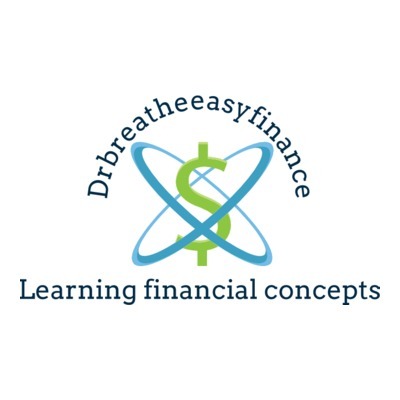Table of Contents
Introducing the HENRY concept
I have an interesting concept for you today, and it is the HENRY (High Earner, Not Rich Yet) idea.
The term HENRY was coined in the year 2003 in relation to the alternative minimum tax. It was found in an article published by Fortune Magazine. It was defined as a niche of families earning between $250,000 and $500,000, but have little money left after taxes and after paying for housing, schooling, and family costs. It goes on to mention retirement account savings to be another cost that makes it difficult for this group of people.
Personally, I have been trying to figure out the category that I fit in financially and finally came across the term. It fits perfectly, not just because the acronym spelled out the name of an actual human, but because it represents a unique group of people – myself included.
When I asked my group of friends about the concept, they all agree that this is one of the toughest groups to belong in. A lady friend asked me if HENRY was single. That made for a good laugh. She was not wrong because, if a HENRY can find a partner that knows how to handle finance well like my friend, he will get out of that group very fast.
There are myriads pressing needs and many temptations especially if we start to compare ourselves with the people ahead of us.
In the physician finance blogging space, for example, many in their 40s, who have practiced for over 10 years are talking about retiring early and some like passive income MD and physician on fire actually made it and we are all happy for them. My point is, everyone’s stage is different and it is important to stay focused and get out of the HENRY group ASAP.

Who is a high-income earner? And what does it have to do with income class
In the definition above, we kind of alluded to the definition. In the original article about HENRY, the definition was 250k – 500k.
You can already see the problem with that broad classification. 250k in my small town in Arkansas might be high income, but 250k in New York City will get by, but you can’t live like a king.
Another scenario is someone with 500k debt who makes 250k a year, is that considered rich? Nope.
The truth is, income class is a moving target. If you are in the higher class and start to buy expensive toys like cares, lake house, and boats.. and what’s the point of a boat without frequent parties? This particular individual will slide down to the middle class or lower class sooner or later.
Whereas, if you make the poverty line income, but save your money, attain a better education, you then have a higher chance of getting catapulted to the middle class and with a little luck, into the upper class.
What is HENRY demographics and why everyone wants your money
According to many retailers and marketers, HENRYs are the most important demographic group to target. In fact, some define this group as the new middle class.
Age range – 35 -54. The reason for this is that many people start earning low at the beginning of their career and it takes about 10 – 20 years to reach their peak earning years. For this reason, research showed most people reach their highest level of income between the ages of 35 to 54.
Doctors might be able to reach there early. For example, I am a 33-year-old HENRY.
The 20 year period of high income was also divided into two. The first 10 years, otherwise known as the early HENRYs, and the last 10 years are the late HENRYs.
The most important targeted group are the early HENRYs because they spend significantly more on goods and services than the late HENRYs. The reason is obvious. The early group is forming households, having children, buying homes and buying nice cars. They are more likely to experience lifestyle creep. Keeping up with the Jones. Some are necessary spending and some are immature spending and the marketers are counting on our immaturity.
The more mature households have already made many of those lifestyle investments and are also less likely to spend on less important things. In fact, it seems like the trend is to spend the first few decades of life acquiring junks, then spend the last decades getting rid of the junk.
Why is it important to identify HENRYs
Part of the reason was described above, we drive the economy. HENRYs are the bulwark of the professional and entrepreneurial class that drives the economy. In fact, many economists are in the habit of predicting when each generation will reach their peak earning years and they are gearing for it.
Millennials are the next in line for an economic boom. Due to millennial starting late in their careers nowadays, it is estimated that we will have to wait till about 2026 to 2029 to see the demographically-driven boom in the economy. That will be the period when the Millennials in mass reach peak earnings and thus peak spending years.
Marketers know that HENRYs are more likely to be aspirational buyers. This means that, although they cannot afford the item currently, they are more likely to purchase that shiny object to live the lifestyle they one day hope to be able to fully afford.
Specific pains of the HENRYs
The most painful part of being in this group is that HENRYs are mistakenly classified as wealthy and rich. You only need to look at the political debates and see how everyone talks about increasing tax on people who makes over $250,000. It is almost like there is a psychological block at that particular number for people who make less than that amount.
This misclassification is particularly dangerous. HENRYs are usually two-income families in their early career, most likely in debt from student loan. Sound familiar? Early career doctors are in this specific group. Take me for example with 300k in student loan debt. Thankfully, that is behind us now, but despite making in the range of HENRYs, it was still difficult to save money in the beginning as almost all my income was going into paying off debt.
It is important not to fall into the hype and believe you are rich or wealthy because the media portrays you to be so. If care is not taken, you can end up in a bad financial position and may never be able to retire.
In an article I wrote about the compensation and spending habits of physicians, among many alarming statistics, this one took the price – according to Medscape, Even at age 65, one-fourth of physicians still have less than $1 million in savings.
Henrys are essentially the “working rich” of our society. If we stop working, we suddenly become poor.
How to thrive and get out of the HENRY demographic ASAP
-
You need a personal finance mission statement
A personal finance mission statement is like the road map of where you want to be in a certain amount of years and how you plan to get there. This statement also helps you decide what to attack first. Are you going to pay off debt first or invest? What about investing vs saving for children’s education?
The method we used to improve our odds is in our article – Dave Ramsey is outdated, try our 12 toddler steps to financial freedom instead. This particular article took Dave Ramsey 7 baby steps and modified it to suit our personal need. It has worked well so far. We are now at the wealth-building stage. Our goal is to become financially independent in 10 – 15 years. Essentially moving from the HENRY group to the rich group. Ultimately to wealthy.
-
Have a solid personal finance pyramid
To build a solid financial foundation and be able to weather the storm thrown at you from all angles financially, you need a solid base. You need to insure yourself to the teeth. Check out our blog post on financial planning pyramid where we talked about how to have a solid wealth foundation, then how to navigate through your wealth accumulation phase and how to preserve the wealth you have built. All these tips will prevent you from falling when you finally make a mistake. HENRYs are one mistake away from poverty. Like losing a job without an emergency fund in place.
-
Live Below Your Means
The main reasons why HENRYs are unable to move out of this group to the wealthy side is because they think they can live like the wealthy or worse, they think they are wealthy. All financial books could essentially be summarized into a few sentences, and living below your means is one of them.
Comparison is the theft of joy, so stop comparing yourself to others, especially people who are steps ahead of you. If care is not taken and you keep trying to live up to their level, then you won’t be able to get there.
I have a special feature on the subject and he has a positive spin on being a HENRY
He walked us through how he prioritizes some of the important pressing needs. Before we dive into it, subscribe to our newsletter and get our free budgeting and finance E-Book to get started.
Investing vs paying off debt vs having a solid emergency fund.
The advantage of being a HENRY is having the choice to choose where you focus your investments, the difficult part is knowing what investments deserve immediate prioritization. It’s a luxury problem, but it’s still a problem. As I evaluate my own priorities, I have to juggle between three seemingly equally important investments.
1) As I work at a technology company, a large part of my compensation is incentive stock options. Put simply, I have the option to purchase shares in my company at a highly discounted rate; if I do so now I may be able to lock in huge tax savings in the future. This is obviously a smart investment and one that may yield 10-20x whatever money I put towards it today, but it is one where the payoff is unclear and in the future.
2) Like many HENRY’s, I am working on paying down debt. I have a mortgage that is very low interest that I consider “good debt”, as well as a $18k SOFI loan from when I consolidated my credit card debt a few years ago (this is down from $36k, so although I am not proud to have the loan I am happy to say I have got my spending under control). This loan is at 7%, which isn’t awful but isn’t great.
3) I would like to build my emergency fund up from $10k, which is barely a month and a half of expenses, to $35 or 40k. This is a low return investment, but one that I consider essential as we near a potential recession.
How do I prioritize these three? After buying a portion of my stock options last year, I have decided to focus on paying down debt to lower my expenses and building up my emergency fund. I could put more towards my stock, but in the event of a recession it’s money that I may never see, so I consider the “low risk, low reward” investments a much higher priority.
There you have it. I am in a unique group called HENRY and so are many of you reading this article. Having a solid personal finance mission statement and building a solid financial planning pyramid will catapult you from HENRY to HERA (High earner, Rich Already) and ultimately HEWLJB (High earner, wealthy Like Jeff Bezo)
If you are a HENRY, tell us in the comment how you are prioritizing your finances and what you decided to tackle first or are you juggling all the needs at the same time? If your comment is awesome, I will add it to the blog post.
I am a pulmonary and critical care doctor by day and personal finance blogger/debt slaying ninja by night.
After paying off close to $300,000 in student loan debt in less than 6 months into my real job, I started on a mission to help others achieve the same. There is no magic to this than to strap up and get it done. Some of the ways we achieved this include side hustle, budgeting, great negotiation skills, and geographical arbitrage.
When I was growing up, common knowledge in Nigeria is that there is one thing you cannot trust anyone else with, and you guessed it – your money.
Being frugal came easily to me based on my background. However, the concept of building wealth did not solidify in my mind until when I finished medical school. I wish I knew what I know now when I was 14. Still, I don’t know enough and I am constantly learning to improve my knowledge.
My goal is to reduce financial illiteracy among young professionals. I am catering to the beginners – babies and toddlers in financial literacy.








Leave a Reply